1897
J. King Harness is Born
Jake Harness, as he is known to friends and family, is born in Corydon, Kentucky, on April 17, 1897.




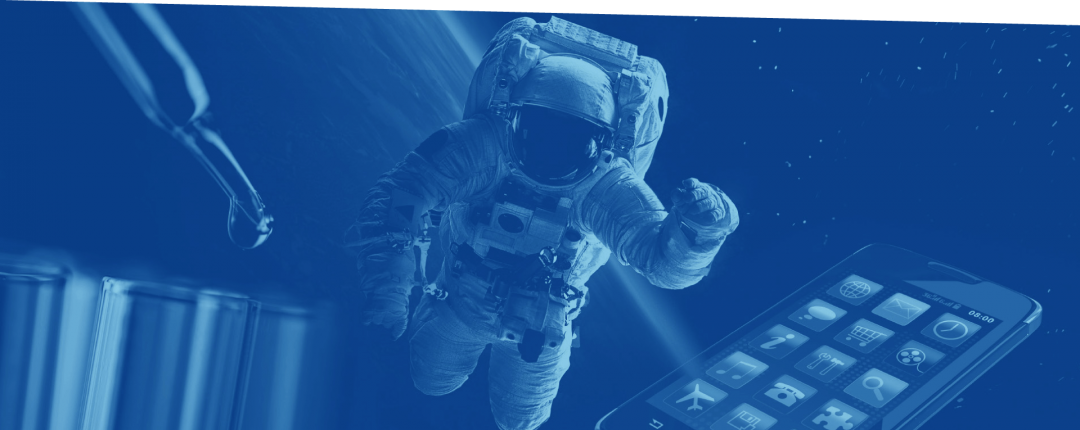


Harnessing innovation for 100 years. Few intellectual property law firms can say they have held the trust and confidence of their clients throughout a century, but we are honored that this is true for Harness IP. We have sought to enable clients across the world to harness their innovation to build business success and achieve the most from their IP investment, allowing our firm to grow and thrive simultaneously, decade after decade. This year, we celebrate a century of strong relationships, high standards, and technology.
Jake Harness, as he is known to friends and family, is born in Corydon, Kentucky, on April 17, 1897.
Harness starts as a Stenographer in the legal department of Ford Motor Company and then becomes the Secretary to the General Attorney.
At the age of 21, Harness organizes and heads Ford’s first Patent Department.
After attending night school at the Detroit College of Law, Harness is admitted to practice law in Michigan.
Harness leaves Ford to launch his own patent and trademark firm on the 10th floor of the Majestic Building in Downtown Detroit.
Not long after opening, the firm moves to the General Motors Building in the New Center district.
In November, Harness becomes Patent Counsel for Maxwell Motor Corporation, which would later become Chrysler Corporation. He splits his time between his firm and Chrysler for the next four decades.
Arthur Dickey, Harness’ classmate from Detroit College of Law, joins the firm and leads a successful practice in patent litigation. The firm is briefly renamed “Harness & Dickey.”
Hodgson Pierce, also a classmate from law school, joins the firm. The firm is soon renamed “Harness, Dickey & Pierce.”
Jake Harness’ oldest son, Don, joins the firm. Jake’s son Hugh would later join, as well. They both become Partners.
Hodgson Pierce passes away. There are 14 attorneys at the firm at the time of his death.
After serving as Chief Patent Counsel and working one day every week in Chrysler’s offices for roughly 40 years, Jake Harness retires from Chrysler. He continues to serve as an occasional consultant, however.
Arthur Dickey passes away suddenly at the age of 66. There are 25 attorneys at the firm at the time of his death.
The firm opens an office in Birmingham, a suburb north of Detroit, in the summer of 1973. The Detroit office eventually closes in 1977.
Harness and wife Vera move to Arizona
Harness passes away. The firm had 25 attorneys at the time of his death. Harness’ wife Vera passes away in 1999 at the age of 103.
Attorney Charlie Blair buys the firm its first computer, an Alpha Micro, which was primarily used to run a word processing program called SuperView. The firm soon upgrades to IBM PCs, supported largely by attorneys with an interest in the burgeoning field of personal computers.
The firm welcomes its first woman patent attorney.
Another office change, this time to Troy, Michigan. As part of the new office build out, the firm creates its first file sharing network using Novell NetWare.
The firm has 48 attorneys and 81 staff. The same year, Blue Cross Blue Shield of Michigan awards the firm a plaque celebrating 50 years of continuous partnership.
www.harnessip.com was registered on November 9, 1993. Attitudes about the commercial use of the Internet had largely been negative until the early 1990s, but then began to change. It took several more years for the Internet to be fully borne out as a useful medium.
Gary Newston is elected to serve as President of the American Intellectual Property Law Association. The AIPLA dates back to the late 1800s and serves as an important group for supporting IP professionals and advancing an effective and balanced intellectual property system.
The firm welcomes the new millennium with 64 attorneys.
The firm opens an office in Clayton, Missouri, led by partners Joe Walsh and Bryan Wheelock.
The firm opens an office in Reston, Virginia, led by partners John Castellano, Don Daley, and Gary Yacura.
Harness IP enters triple digits with the addition of its 100th attorney, cementing its position as one of the largest firms in the U.S. focused exclusively on intellectual property.
Harness IP attorneys secure the first ruling in an Inter Partes Review proceeding to uphold a claim in their client’s patent. Up to that point, the patent survival rate at the PTAB was notoriously low. The ruling offered a glimmer of hope for patent holders across the U.S.
On behalf of Octane Fitness, Harness IP secures a unanimous verdict from the Supreme Court in the client’s favor.
The firm opens an office in Frisco, Texas, led by partner Jerry Welch.
On behalf of firm client Proxyconn, attorneys Bryan Wheelock and Matt Cutler secure the Federal Circuit’s first-ever reversal of an Inter Partes Review decision, thereby ruling in favor of the patentee.
Harness IP welcomes back former Principal, and former Chief Patent Counsel of Ford Global Technologies, Bill Coughlin to serve in the role of CEO.
The firm celebrates 100 years in Business
Jake Harness, as he is known to friends and family, is born in Corydon, Kentucky, on April 17, 1897.
Harness starts as a Stenographer in the legal department of Ford Motor Company and then becomes the Secretary to the General Attorney.
At the age of 21, Harness organizes and heads Ford’s first Patent Department.
After attending night school at the Detroit College of Law, Harness is admitted to practice law in Michigan.
Harness leaves Ford to launch his own patent and trademark firm on the 10th floor of the Majestic Building in Downtown Detroit.
Not long after opening, the firm moves to the General Motors Building in the New Center district.
In November, Harness becomes Patent Counsel for Maxwell Motor Corporation, which would later become Chrysler Corporation. He splits his time between his firm and Chrysler for the next four decades.
Arthur Dickey, Harness’ classmate from Detroit College of Law, joins the firm and leads a successful practice in patent litigation. The firm is briefly renamed “Harness & Dickey.”
Hodgson Pierce, also a classmate from law school, joins the firm. The firm is soon renamed “Harness, Dickey & Pierce.”
Jake Harness’ oldest son, Don, joins the firm. Jake’s son Hugh would later join, as well. They both become Partners.
Hodgson Pierce passes away. There are 14 attorneys at the firm at the time of his death.
After serving as Chief Patent Counsel and working one day every week in Chrysler’s offices for roughly 40 years, Jake Harness retires from Chrysler. He continues to serve as an occasional consultant, however.
Arthur Dickey passes away suddenly at the age of 66. There are 25 attorneys at the firm at the time of his death.
The firm opens an office in Birmingham, a suburb north of Detroit, in the summer of 1973. The Detroit office eventually closes in 1977.
Harness and wife Vera move to Arizona
Harness passes away. The firm had 25 attorneys at the time of his death. Harness’ wife Vera passes away in 1999 at the age of 103.
Attorney Charlie Blair buys the firm its first computer, an Alpha Micro, which was primarily used to run a word processing program called SuperView. The firm soon upgrades to IBM PCs, supported largely by attorneys with an interest in the burgeoning field of personal computers.
The firm welcomes its first woman patent attorney.
Another office change, this time to Troy, Michigan. As part of the new office build out, the firm creates its first file sharing network using Novell NetWare.
The firm has 48 attorneys and 81 staff. The same year, Blue Cross Blue Shield of Michigan awards the firm a plaque celebrating 50 years of continuous partnership.
www.harnessip.com was registered on November 9, 1993. Attitudes about the commercial use of the Internet had largely been negative until the early 1990s, but then began to change. It took several more years for the Internet to be fully borne out as a useful medium.
Gary Newston is elected to serve as President of the American Intellectual Property Law Association. The AIPLA dates back to the late 1800s and serves as an important group for supporting IP professionals and advancing an effective and balanced intellectual property system.
The firm welcomes the new millennium with 64 attorneys.
The firm opens an office in Clayton, Missouri, led by partners Joe Walsh and Bryan Wheelock.
The firm opens an office in Reston, Virginia, led by partners John Castellano, Don Daley, and Gary Yacura.
Harness IP enters triple digits with the addition of its 100th attorney, cementing its position as one of the largest firms in the U.S. focused exclusively on intellectual property.
Harness IP attorneys secure the first ruling in an Inter Partes Review proceeding to uphold a claim in their client’s patent. Up to that point, the patent survival rate at the PTAB was notoriously low. The ruling offered a glimmer of hope for patent holders across the U.S.
On behalf of Octane Fitness, Harness IP secures a unanimous verdict from the Supreme Court in the client’s favor.
The firm opens an office in Frisco, Texas, led by partner Jerry Welch.
On behalf of firm client Proxyconn, attorneys Bryan Wheelock and Matt Cutler secure the Federal Circuit’s first-ever reversal of an Inter Partes Review decision, thereby ruling in favor of the patentee.
Harness IP welcomes back former Principal, and former Chief Patent Counsel of Ford Global Technologies, Bill Coughlin to serve in the role of CEO.
The firm celebrates 100 years in Business

Client: Chrysler
Year Obtained: 1932
One of at least two patented technologies that the founder of Harness IP, Jake Harness, invented himself. He also prosecuted the patent and assigned it to Chrysler, where he served as in-house counsel at least one day per week for nearly forty years. He spent the rest of the week leading the team at Harness IP.

Client: Monroe Auto Equipment Company
Year Obtained: 1951
Harness IP obtained U.S. Patent No. 2,546,038 on behalf of client Monroe Auto Equipment Company and then successfully enforced it at trial. At the time of the decision, the ‘038 patent and another patent also obtained by Harness IP protected about 90% of the client’s shock absorber product line. Interestingly, the lawsuit was a frequent topic of law school debate over whether the acts of a repair shop or remanufacturer constitute permissible repair or impermissible reconstruction of a patented device.

Client: La-Z-Boy
Year Obtained: 1954
The La-Z-Boy trademark protects a famous American brand with whom Harness IP is proud to have a long relationship dating back to the 1950s. Both La-Z-Boy and Harness IP were founded in Michigan in the first half of the twentieth century, and are still going strong today.

Client: Copeland Corporation
Year Obtained: 1986
The ‘334 patent, among other Copeland patents, relates to scroll compressor technology for use in industrial and commercial refrigeration. The move to scroll compressor technology marked a big leap forward as it was both more efficient and more reliable than other refrigeration technologies that existed at the time. Both Copeland Corporation and Harness IP were founded in Detroit around the same time, and Harness IP has represented Copeland nearly continuously since the 1920s, including in its current form as a division of Emerson.

Client: Dr. Barry Marshall
Year Obtained: 1989, 1993, and 1997, Respectively
This trio of patents protected the work of Dr. Barry Marshall and helped him win the 2005 Nobel Prize in Medicine for his discovery of the role of the bacterium Helicobacter pylori in gastritis and peptic ulcer disease. The firm was involved in two ways: Harness IP attorneys helped deliver a successful outcome over a patent dispute that arose, and the patents themselves were largely prepared and prosecuted by attorney David Suter, who was in-house counsel at Procter & Gamble at the time and is now a Principal of the firm.

Client: Joe Rocket
Year Obtained: 1994
Harness IP obtained U.S. Trademark Registration for JOE ROCKET, which was owned by a popular manufacturer of motorcycle jackets and gear. When the attorneys learned their client’s trademark was being infringed, however, they sprang into action to enforce the client’s brand position. The resulting actions included working with Federal Marshalls to carry out a raid and successful seizure of counterfeit goods.

Client: Thad Johnson
Year Obtained: 1995
Up until the late 1990s, bolting an oil pan to the bottom of a car engine was done by hand on the auto assembly line. Lining up the oil pan, engine, and bolts, and then using the bolt driver required a considerable amount of coordination and time. Thad Johnson, a solo inventor, found a way to use grommets to align everything, allowing a robot to come in and drive in the bolts. The result was a faster and safer process for workers. The inventor eventually sold his patent to one of the Big Three auto companies and made enough profit that he was able to launch a new career as a serial-entrepreneur.

Client: Michigan State University
Year Obtained: 2004
On behalf of Michigan State University, Harness IP obtained U.S. Plant Patent 15,103 for the blueberry plant known as “Draper.” MSU Professor James Hancock invented the new variety, which later became the basis for other new and improved varieties. According to Richard Chylla, the Executive Director of MSU Technologies, MSU earned more than $4.7 million in royalties from licensing the blueberries to growers worldwide. The small but mighty Draper led to a clear win-win: millions of dollars in additional revenue for MSU and farmers around the globe, and more delicious and healthy fruit for the rest of the world.

Client: WP Innova
Year Obtained: 2011
Harness IP obtained the ‘304 patent, which is based on a Canadian filing, and successfully enforced it at trial. The patent was found valid and willfully infringed in a jury trial, allowing the firm to also secure treble damages and a permanent injunction against the defendant.
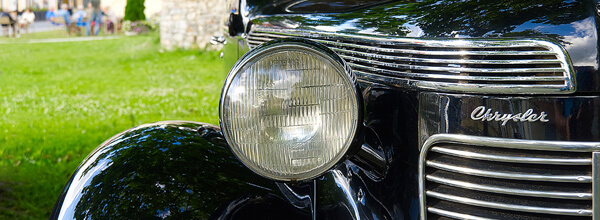
Client: Chrysler
Year Obtained: 1932
One of at least two patented technologies that the founder of Harness IP, Jake Harness, invented himself. He also prosecuted the patent and assigned it to Chrysler, where he served as in-house counsel at least one day per week for nearly forty years. He spent the rest of the week leading the team at Harness IP.
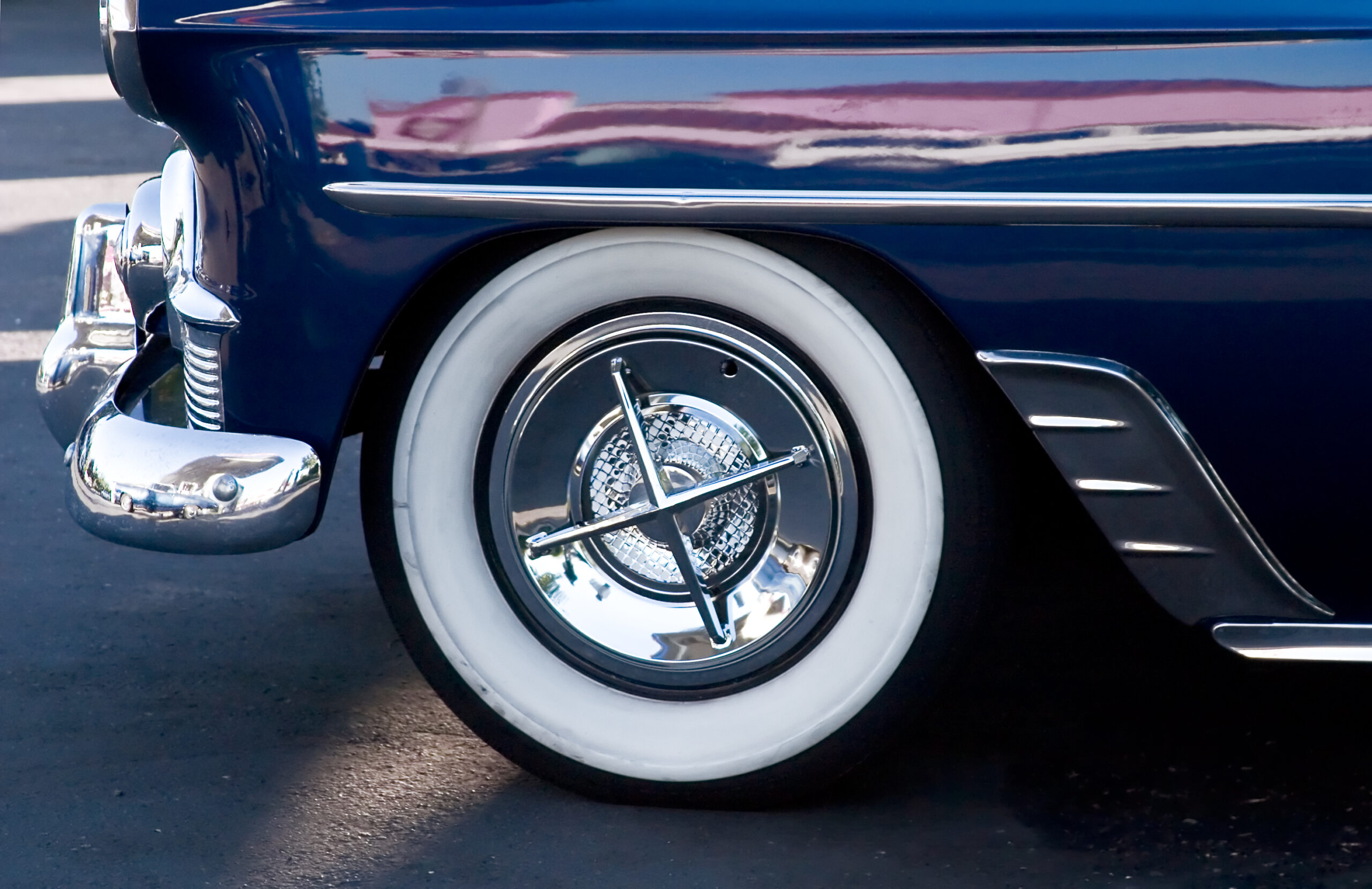
Client: Monroe Auto Equipment Company
Year Obtained: 1951
Harness IP obtained U.S. Patent No. 2,546,038 on behalf of client Monroe Auto Equipment Company and then successfully enforced it at trial. At the time of the decision, the ‘038 patent and another patent also obtained by Harness IP protected about 90% of the client’s shock absorber product line. Interestingly, the lawsuit was a frequent topic of law school debate over whether the acts of a repair shop or remanufacturer constitute permissible repair or impermissible reconstruction of a patented device.
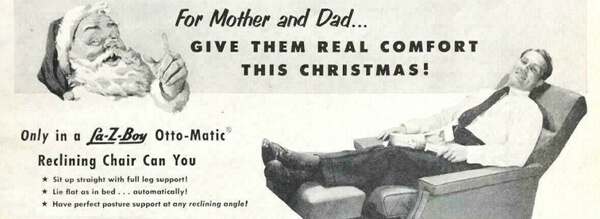
Client: La-Z-Boy
Year Obtained: 1954
The La-Z-Boy trademark protects a famous American brand with whom Harness IP is proud to have a long relationship dating back to the 1950s. Both La-Z-Boy and Harness IP were founded in Michigan in the first half of the twentieth century, and are still going strong today.
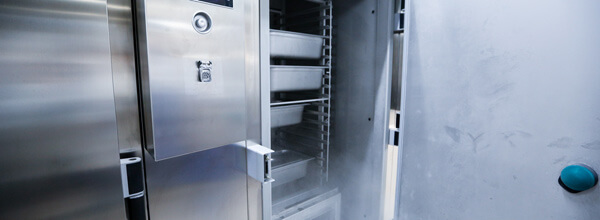
Client: Copeland Corporation
Year Obtained: 1986
The ‘334 patent, among other Copeland patents, relates to scroll compressor technology for use in industrial and commercial refrigeration. The move to scroll compressor technology marked a big leap forward as it was both more efficient and more reliable than other refrigeration technologies that existed at the time. Both Copeland Corporation and Harness IP were founded in Detroit around the same time, and Harness IP has represented Copeland nearly continuously since the 1920s, including in its current form as a division of Emerson.

Client: Dr. Barry Marshall
Year Obtained: 1989, 1993, and 1997, Respectively
This trio of patents protected the work of Dr. Barry Marshall and helped him win the 2005 Nobel Prize in Medicine for his discovery of the role of the bacterium Helicobacter pylori in gastritis and peptic ulcer disease. The firm was involved in two ways: Harness IP attorneys helped deliver a successful outcome over a patent dispute that arose, and the patents themselves were largely prepared and prosecuted by attorney David Suter, who was in-house counsel at Procter & Gamble at the time and is now a Principal of the firm.
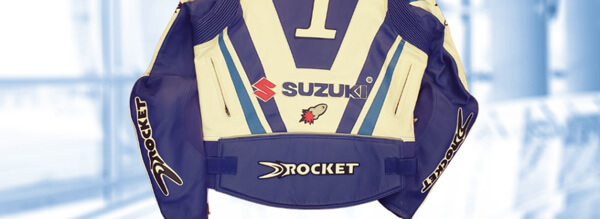
Client: Joe Rocket
Year Obtained: 1994
Harness IP obtained U.S. Trademark Registration for JOE ROCKET, which was owned by a popular manufacturer of motorcycle jackets and gear. When the attorneys learned their client’s trademark was being infringed, however, they sprang into action to enforce the client’s brand position. The resulting actions included working with Federal Marshalls to carry out a raid and successful seizure of counterfeit goods.
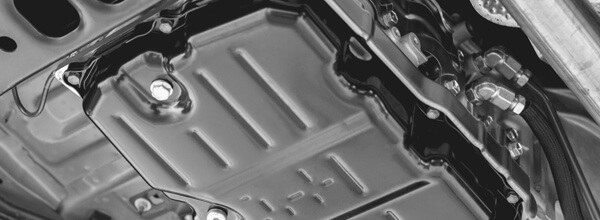
Client: Thad Johnson
Year Obtained: 1995
Up until the late 1990s, bolting an oil pan to the bottom of a car engine was done by hand on the auto assembly line. Lining up the oil pan, engine, and bolts, and then using the bolt driver required a considerable amount of coordination and time. Thad Johnson, a solo inventor, found a way to use grommets to align everything, allowing a robot to come in and drive in the bolts. The result was a faster and safer process for workers. The inventor eventually sold his patent to one of the Big Three auto companies and made enough profit that he was able to launch a new career as a serial-entrepreneur.

Client: Michigan State University
Year Obtained: 2004
On behalf of Michigan State University, Harness IP obtained U.S. Plant Patent 15,103 for the blueberry plant known as “Draper.” MSU Professor James Hancock invented the new variety, which later became the basis for other new and improved varieties. According to Richard Chylla, the Executive Director of MSU Technologies, MSU earned more than $4.7 million in royalties from licensing the blueberries to growers worldwide. The small but mighty Draper led to a clear win-win: millions of dollars in additional revenue for MSU and farmers around the globe, and more delicious and healthy fruit for the rest of the world.
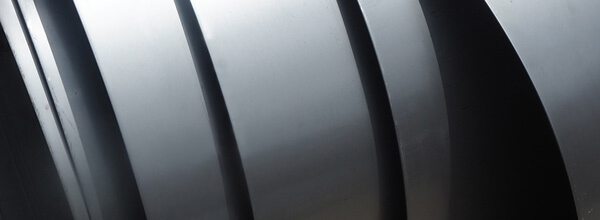
Client: WP Innova
Year Obtained: 2011
Harness IP obtained the ‘304 patent, which is based on a Canadian filing, and successfully enforced it at trial. The patent was found valid and willfully infringed in a jury trial, allowing the firm to also secure treble damages and a permanent injunction against the defendant.
For the rapidly growing company Algae to Omega, we are happy to serve as their outside patent counsel and guide them through the process for protecting their technology for large scale, sustainable, and eco-friendly algae production.
Once harvested, the algae can be used in numerous food products, nutraceuticals, and animal feed products. In addition to our patent work, our counsel has assisted the young company regarding agreements with potential development partners. Leveraging the IP assets we helped them obtain has also allowed the company to attract new investors.

While watching his daughters make friendship bracelets one day, a Michigan engineer named Cheong Choon Ng was inspired to invent the Rainbow Loom, a toy that lets children turn rubber bands into creative and colorful bracelets. Mr. Ng and his family soon built their new company into one of the most popular brands in the country. The Rainbow Loom was named the #1 toy in America in 2015 and hand-made Rainbow Loom bracelets were proudly worn by Michelle Obama.
With popularity comes vulnerability to copycats, though, and when Mr. Ng learned that counterfeiters were making cheap and potentially unsafe versions of the toy in Asia, he turned to Harness IP for help. Led by trademark attorney Beth Coakley, our team of attorneys worked with Customs Officers around the world to identify and stop the importation of counterfeit toys into the U.S. Our team was able to obtain expedited trademark and copyright registrations in Asian jurisdictions based on the Rainbow Loom’s existing U.S. trademarks and copyrights. We then worked with government authorities and attorneys around the globe to stop the export of counterfeit goods, freeze the counterfeiters’ assets, and secure judgments against them. Eventually, the counterfeiters were black-balled and unable to travel outside of China for a decade. By cutting off the counterfeiters at both ends — exports from Asia and imports into the U.S. — we were able to clear the fake competition from the market and secure an overall increase in sales for the Rainbow Loom brand.

When entrepreneur and serial inventor Joe McDonnell had an idea for a new household consumer product, he turned to his long-time patent attorney, Harness IP Principal Gary Yacura, for counsel on the necessary due diligence and freedom-to-practice studies. Gary’s analysis helped guide the new product’s development by navigating around competitor patents.
The firm then provided additional opinions of counsel on the current landscape of the household products market. With strong non-disclosure agreements in place, Joe and Gary were able to share these opinions with the legal team of a large retail partner, raising the confidence levels for all parties in a smooth product launch. Joe was then able to launch his new product safely, successfully, and profitably.
